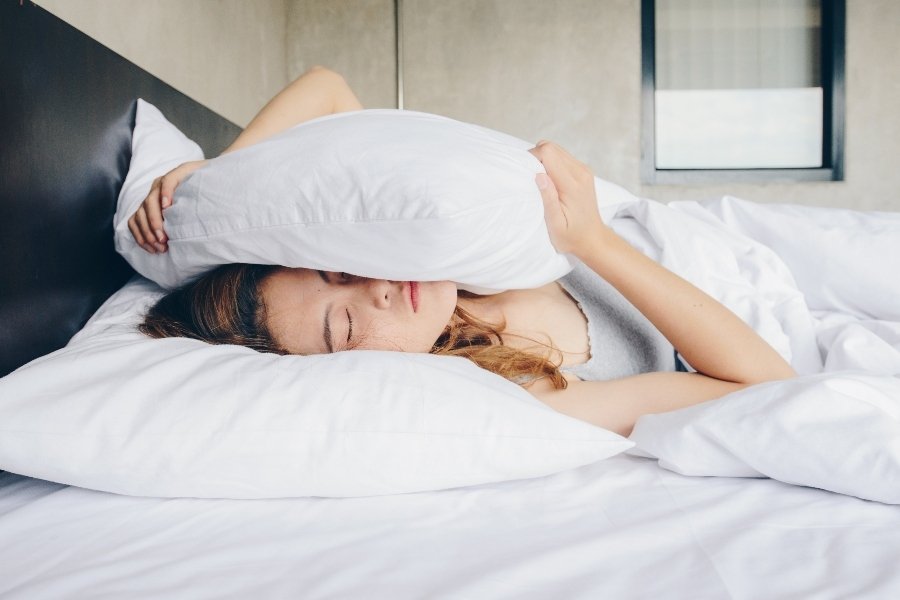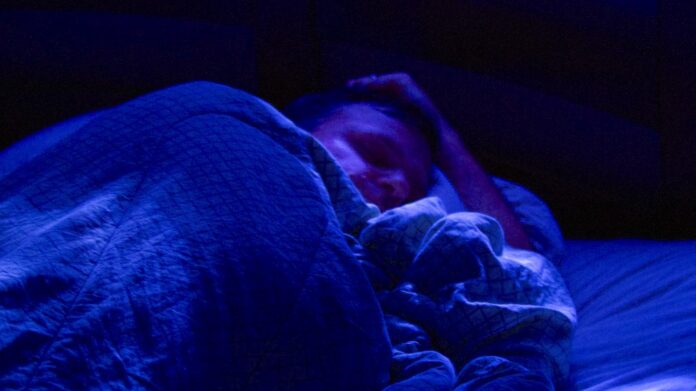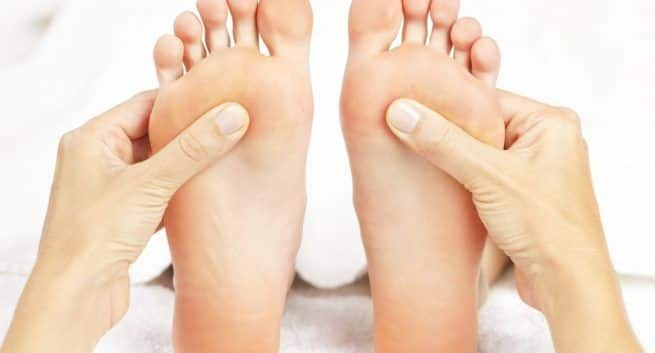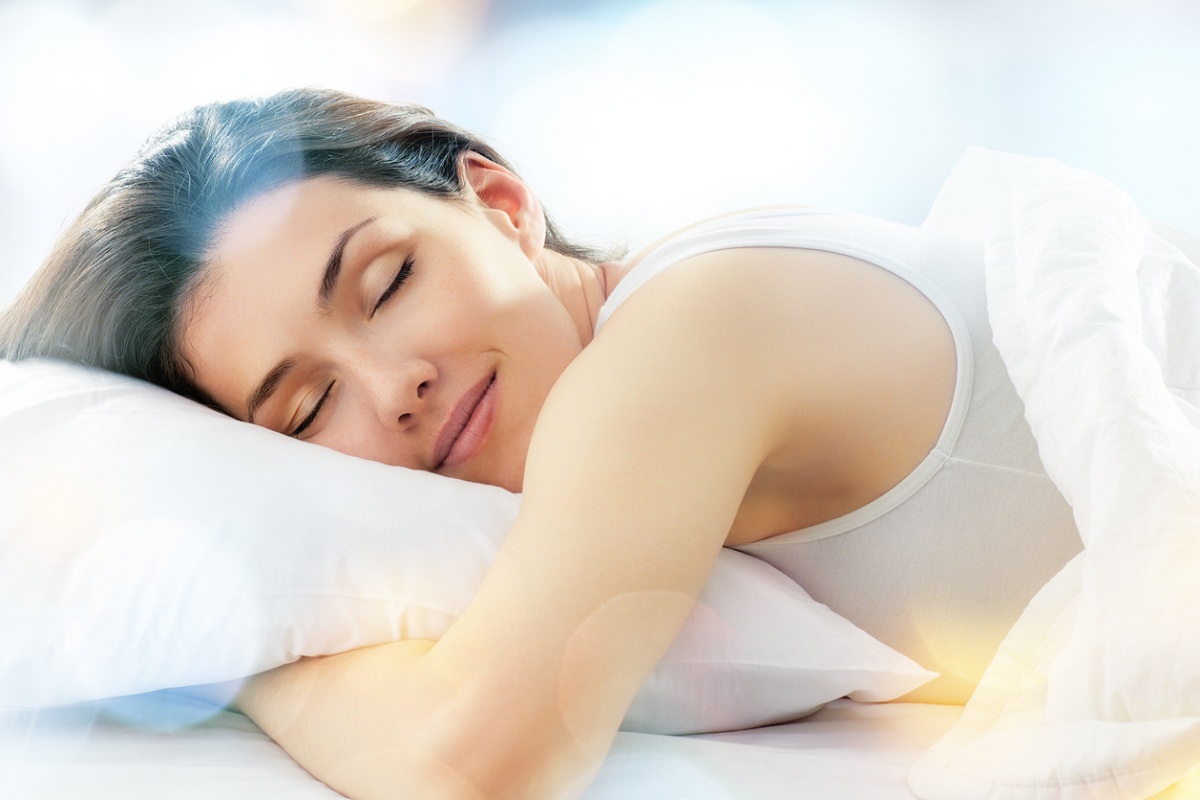The inability to fall back asleep after waking up is medically known as sleep-maintenance insomnia. Studies have found that anywhere from
Other forms of insomnia can cause:
- difficulty falling asleep
- frequent awakenings
- spontaneous early morning awakenings
If you’re dealing with sleep-maintenance insomnia, it’s a good idea to look for potential reasons why you may be waking up in the first place. Needing to use the bathroom, a beam of early morning sunlight shining through your window, or loud sounds are a few of the potential causes.
Sometimes, waking up in the middle of the night is unavoidable. Having a strategy in place to help you get back to sleep can help you minimize the amount of time you spend staring at the ceiling.
Let’s go over 10 tips to fall back asleep after waking up at night. We’ll also look at what you can do if your insomnia is caused by stress or nightmares.
If you’re having trouble getting back to sleep after waking up, it’s a good idea to avoid anything mentally stimulating and to focus on relaxing. The following 10 tips may help you.
1. Get rid of bright lights or loud sounds
If you’re having trouble falling back asleep, look for any lights in your bedroom that may be disturbing you. LED lights from electronics and light coming through your window may it more difficult to fall back asleep.
If a disturbing sound is coming through your window from outside, try shutting your window to block it out. Using earplugs, turning on a fan, or listening to white noise can also help you drown out disturbing sounds.
2. Get out of bed and move
Many sleep experts recommend getting out of bed and going to a different room if you’re unable to fall back asleep within about 20 minutes.
Moving into a different room and doing something relaxing to distract your mind for a few minutes may make it easier to fall back asleep when you return.
3. Avoid staring at the clock
Staring at the clock may make you feel anxious about not sleeping, especially if you already deal with generalised anxiety disorder.
4. Avoid checking your phone or other screens
Screens from smartphones and other electronics emit blue light that may suppress your body’s melatonin production. Melatonin is a hormone made by the pineal gland in your brain that helps regulate your circadian rhythm and sleep cycles.
While it’s best to avoid checking your phone at night because of the potential for mental stimulation, there are some ways to reduce your exposure to blue light.
Many devices offer a nightshift mode that changes your screen to a warmer tone. Glasses with amber lenses are also an inexpensive way to block out blue light.
5. Meditate or try breathing exercises
Performing breathing exercises or meditating may help calm your mind and induce sleep. These techniques may also distract you from worrying about falling asleep.
One exercise you can use is called the 4-7-8 breathing technique. With this technique, you inhale through your nose for 4 seconds, hold your breath for 7 seconds, and exhale through your mouth.
6. Relax your muscles
One technique that many people find helps them relax and sleep is performing a full-body body scan.
Here’s one way you can perform a body scan:
- Close your eyes and breathe slowly.
- Focus on your face and think about relaxing each of the muscles.
- Move to your neck and shoulders and think about relaxing them too.
- Continue relaxing muscles in different parts of your body until you make it to your feet.
7. Keep your lights off
Even if you get out of bed, resist the temptation to turn on your lights. As with phone screens, the bright light can interfere with your body’s production of melatonin and stimulate wakefulness.
8. Focus on something boring
Any variation of the classic “counting sheep” technique, or a boring task that occupies your mind, may help distract you and make falling asleep easier. Reading a boring article or book may also work.
A part of your brain called the nucleus accumbens plays a role in motivation and pleasure.
9. Listen to relaxing music
Relaxing music may help relax your mind and coax you to sleep. It can also block sounds that may be disrupting your sleep.
10. Try sleep apps
Many people find that sleep apps help them fall asleep faster by making them feel relaxed. There are many sleep apps on the market that offer relaxing stories, music, or sounds. Many of these apps offer free trials to give you time to find one that works for you.
If you wake up in the middle of the night from a nightmare and have trouble getting back to sleep, you can use many of the same techniques mentioned above to clear your mind and relax:
- Use the 4-7-8 breathing technique or other mediation technique to slow your heart rate and breathing.
- Leave the room or try sleeping somewhere else.
- Listen to music that makes you feel calm.
- Focus your attention on something else for a few minutes.
- Turn on a fan or air conditioner if you feel hot.
Stress and anxiety can make falling asleep difficult. Many people find that journaling about the things that stress them out helps relax and clear their minds.
You can also use some other techniques mentioned above, such as:
- mediation and breathing techniques
- focusing on something boring
- getting up and moving to a different room
- performing a body scan
- meditating
If you’re waking up early in the morning, ask yourself if there’s an obvious cause. Do you wake up needing to use the bathroom? Are you particularly stressed right now?
If the cause isn’t obvious, you can try improving your overall sleep habits to improve your sleep quality. Here are some tips:
- Avoid liquids right before bed.
- Exercise regularly during the day.
- Keep screens out of your bedroom.
- Avoid screens 2 hours before bed, or use night mode.
- Avoid caffeine past mid-afternoon.
- Avoid nicotine and alcohol.
- Cover or turn off lights in your room.
- Avoid naps during the day, especially late in the day.
- Try to adopt a consistent sleep schedule.
The occasional night of disrupted sleep isn’t a cause for concern, but if it’s becoming a pattern, you may want to talk with a doctor. They may be able to help you identify the cause of your poor sleep and help you find ways to adjust your sleep habits.
A doctor may recommend that you see a sleep specialist to look for an underlying cause or sleep disorder. A psychologist or psychiatrist may be able to help you deal with psychological issues disrupting your sleep, and a neurologist can help identify a physiological cause.
Waking up in the middle of the night and not being able to fall back asleep is called sleep-maintenance insomnia. Many people find that focusing on something relaxing or that lets them clear their mind helps them fall asleep faster.
If you can’t sleep after 20 minutes, you may want to move to another room for a few minutes before returning to bed.
But if you notice that your insomnia is becoming a pattern, you may want to talk with a doctor. They may be able to help you find the root of your insomnia or refer you to a sleep specialist.
https://www.healthline.com/health/how-to-go-back-to-sleep#summary







